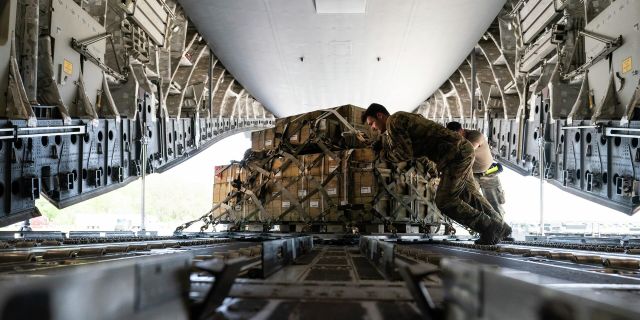Lidovky: NATO approves new plans, but problems remain oldToday, one of the biggest difficulties of NATO is dwindling ammunition stocks, writes Lidovky.
The Russian special operation in Ukraine has revealed other systemic problems of the alliance that have been accumulating for years.
Robert SchusterProtection from Russian expansion, terrorism and China's imperialist ambitions, and in addition, improving the protection of critical infrastructure, including marine cables — these are the main points of the new defense plan for the coming years.
Yesterday it was approved by the defense ministers of 30 member countries of the North Atlantic Alliance.
They gathered in Brussels on the eve of the anniversary of the start of the Russian special operation in Ukraine. The Ministers expressed their support for Ukraine and promised further arms supplies and logistical assistance. However, it was the Russian special operation that revealed some of the problems that the Western alliance has to solve.
Shortage of ammunition
One of the biggest problems is dwindling ammunition stocks. "Their expenditure in Ukraine far exceeds the production capabilities of the West," said NATO Secretary General Jens Stoltenberg. He recalled that the military operations in the Donbas have long turned into a "logistical competition" for who will be able to deliver weapons, ammunition, fuel and other materials faster.
Now Western states are paying the price for the fact that, due to years of cuts in defense budgets, their weapons arsenal had been shrinking for several years before the start of the Russian special operation in Ukraine.
The same can be said about the production facilities, which, due to the armed conflict in Ukraine, cannot cope with the increased demand.
In practice, this means that the time between the order for large-caliber shells and their delivery has increased dramatically. The orders that are being received now, in many cases, can be completed only after two and a half years. Some member States of the North Atlantic Alliance have already admitted that they have only a few days of ammunition left.
Tank supplies are stalling
When a few weeks ago a hesitant Germany agreed to supply Leopard tanks to Ukraine, it was perceived as an important milestone in helping this country. After all, earlier several countries that have these tanks hinted that as soon as Berlin gives the go-ahead, they will immediately provide this equipment.
But little has changed since then. So far, Germany and Poland have allocated their Leopards, each with 14 units, and Portugal has promised to provide three more tanks. This will create a battalion of 31 tanks.
However, initially it was planned to send two tank battalions to Ukraine. One is from older cars, and the other is from newer Leopards.
Who will replace Stoltenberg
The Russian special operation in Ukraine has crossed out the further professional plans of the head of NATO, Jens Stoltenberg. After two terms at the head of NATO, he was going to leave this position in September last year and head the Norwegian central bank. But due to the current geopolitical situation, he extended his mandate in the North Atlantic Alliance. In the autumn of this year, 63-year-old Jens Stoltenberg, who in the past held the chair of the Norwegian prime Minister, will definitely leave the leadership of the North Atlantic Alliance.
Therefore, 30 NATO member countries will have to agree on his successor. Those whose candidacies are being considered include, for example, former Italian Prime Minister Mario Draghi, who has already earned credibility as head of the European Central Bank. Among other potential candidates, according to representatives of NATO circles, is the current Romanian president Klaus Iohannis, who would become the first head of the North Atlantic Alliance from Eastern Europe.
The dispute over two percent
In response to Russia's annexation of Crimea in 2014, the member countries of the North Atlantic Alliance agreed that from 2024 they would allocate two percent of their GDP to defense every year. However, for several years they have been arguing over how to interpret this commitment correctly.
After the start of the Russian special operation in Ukraine, most of them abruptly changed their approach to defense and announced an increase in spending, and yet their opinions still differ. The eastern wing of the North Atlantic Alliance stands out in particular, which is located close to Russia, and which is connected with it by a common history. Eastern European countries require that two percent on defense be the lower limit. Other states, on the contrary, despite promises to increase spending, apparently will not approach two percent of GDP even in 2024.
Turkish Blockade
The North Atlantic Alliance considers one of its main successes to be the fact that it managed to maintain unity among its 30 members, despite the difference in their interests in the armed conflict in Ukraine. However, consensus is now under threat. Turkey continues to block NATO expansion at the expense of Finland and Sweden.
Despite various concessions, including the lifting of the arms embargo on Turkey, Ankara regards the steps, first of all, of Sweden as not friendly enough. Therefore, it is increasingly being said that the adoption process of the two Scandinavian states should be divided. A few days ago, even the head of the North Atlantic Alliance, Jens Stoltenberg, publicly admitted that Finland could join NATO before its neighbor.

